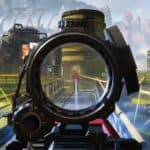Control is the latest title from Remedy. A fresh new start for the renowned studio, which is famous for games like, Max Payne, Alan Wake and, most recently, Quantum Break.
Unlike those titles, however, Remedy owns the intellectual property and publishing rights to Control. Making it the first title whereby the studio has ultimate ‘control’ over everything associated with the game, including funding.
What/who is happening here/there?
In Control you assume the role of Jesse Faden. A young woman who experienced a traumatic and paranormal childhood event. Her search for answers to her past eventually leads her to a mysterious building known as The Oldest House. A place hidden in plain sight, one that is unseen to all except those who the house deems worthy. A place of unusual power. Within The Oldest House, Jesse discovers a clandestine organisation known as The Federal Bureau of Control (FBC). A unique and secretive organisation formed to monitor, research and control paranatural phenomena.
It is here where Jesse learns that the FBC is under attack and how the director, Zachariah Trench, has been killed in the chaos. However, all is not as it seems, and there are unknown forces at work. When Jesse is lead into the building by the janitor Ahti, she discovers the dead director. At his side lies the Service Weapon, which she is compelled to pick up. Upon doing so, she is contacted by a paranatural force known as The Board. She is then whisked away to the Astral Plane where they inform her that the weapon has chosen her to be the new director of the FBC. There is no rhyme or reason for the decision, other than Jesse being “worthy” of the role.
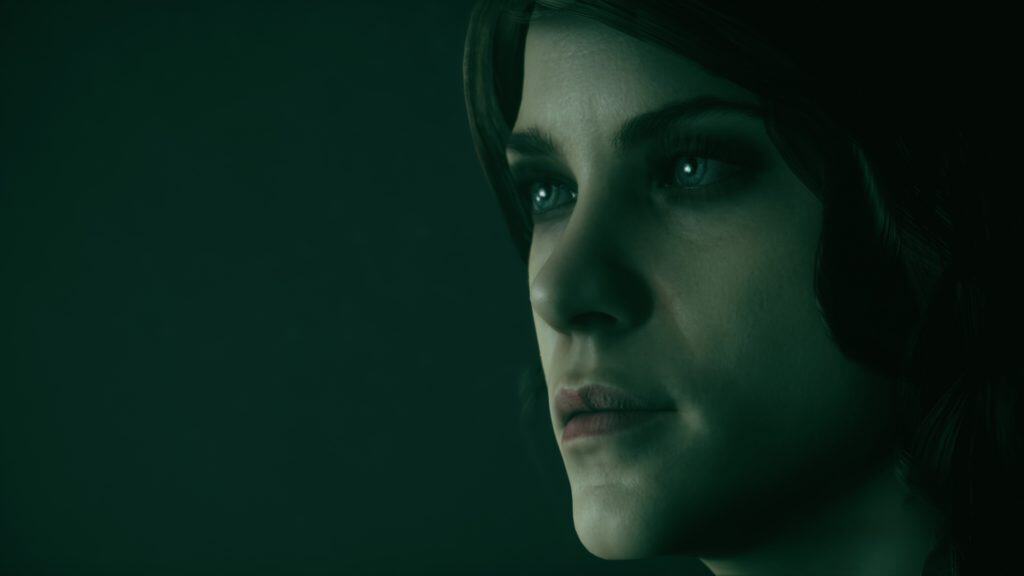
As the new Director, Jesse is tasked with ridding The Oldest House, and the FBC, of a seemingly parasitic entity known as The Hiss. In so doing, she will uncover the mysteries of her brothers disappearance, realise the truth behind what is really ‘controlling’ her motives, and potentially save the world in the process. At least, that is what I have been able to piece together.
Where previous Remedy games offered engrossing narratives, with suitable introductions, story arcs, and unforgettable conclusions; Control assumes a very different narrative layout. One that plays out like a large and convoluted puzzle, where players are forced to explore the game world if they wish to make sense of what is happening. Although the primary story beats will unfold as main campaign missions are completed, they only offer the bare minimum of what is needed for players to become invested in the fourth-wall breaking narrative.
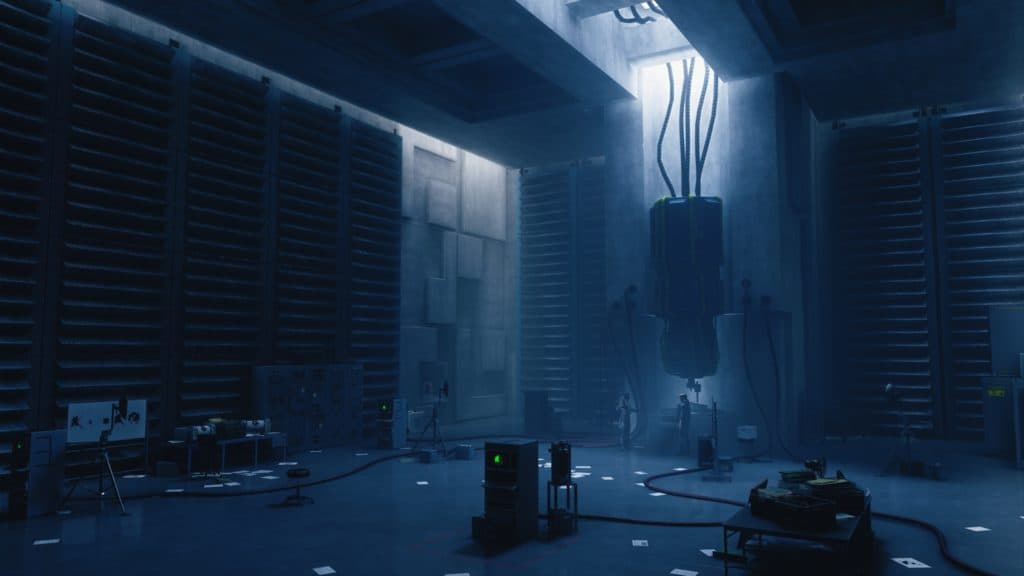
Throughout Control’s campaign, the narrative will often focus on Jesse’s internal monologue. Offering an unusual amount of insight into her thought processes. For the most part, it appears as if she is speaking directly to the player. Until, of course, the truth behind her fourth-wall breaking musings comes to light. Even then, there are moments throughout the game that allude to how the other paranatural forces are fully aware of how Jesse is being controlled by you, the player. It is an interesting, highly affective and wonderfully self-aware narrative element. One that lends a unique feeling to Control’s overall story, and plays in perfectly with the game’s ideas concerning ‘control’.
Much like other Remedy titles, Control’s narrative offers some interesting twists and turns along the way. Unlike the other titles, however, Control’s story can be far more difficult to piece together or to make sense of. In a way, the game’s chapters play out similarly to episodes of LOST or Twin Peaks; non-sensical on their own yet somewhat engrossing as a whole. Mysteries and tantalising story elements are often bandied about without explanation, with the granularity of understanding the overarching story having been relegated to hidden case files, mementoes, or audio and video files. All of which are carefully strewn throughout the maze like levels within The Oldest House.
Players who do take the time and effort to further embellish the story will come away with a better understanding of what the game’s narrative is trying to convey. Those who do not, might find their interest waning over the course of the 20 hour long campaign; which includes a delicious red herring as players near the endgame. What will keep players coming back for more, however, is the gameplay.
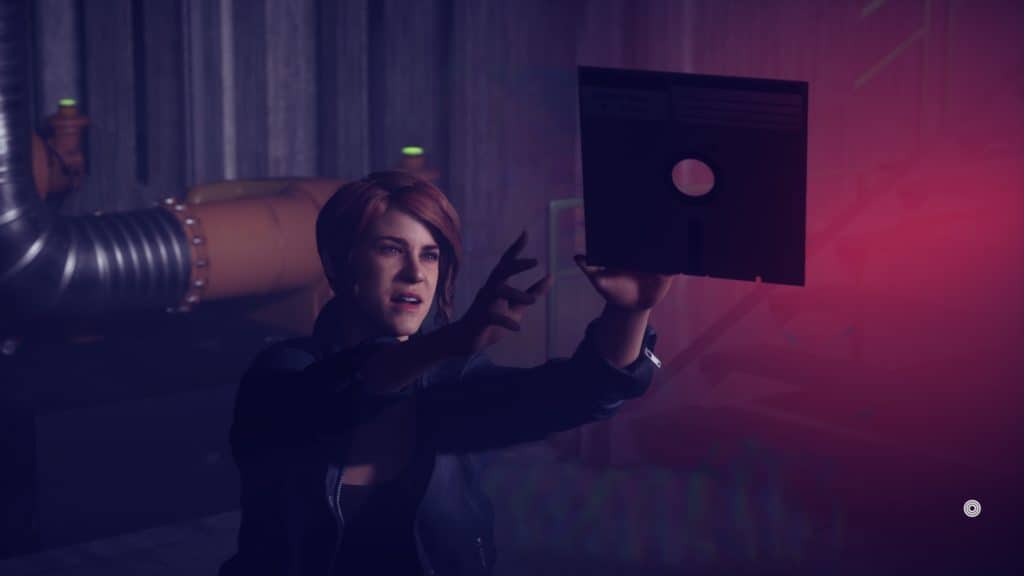
Are you/me in Control/Power?
At the start of the game, Jesse obtains the Service Weapon. A morphing energy gun that can be customised and modded to serve as a pistol, shotgun, sniper rifle or machine gun. Regardless of form, the gun’s ammunition is governed by an energy bar. Each of the weapon states can also be upgraded and enhanced with modifications, which can either be found in loot boxes within the world or randomly rolled within the crafting menu at control points – areas where Jesse has cleared the Hiss corruption and which serve as fast travel, save and respawn locations. Since the Service Weapon is a single entity, its different forms can be selected within the game’s menu. Two options can be set at a time, and can easily be switched during combat with a single button press.
As player’s progress through the game, Jesse will come into contact with paranatural Objects of Power. Some of them will give her paranatural abilities; like telekinesis, levitation, melee push, quick dash, shield barrier, and the ability to assume control of weakened enemies. Each of these abilities can be upgraded through ability points obtained after successful missions. Upgrades include increased damage and enhanced abilities, like a levitation smash or the ability to repel missiles via Telekinesis, among many more.
As fun as these abilities are, there are still some issues with selecting items to grab during combat – an issue that was far more challenging in Quantum Break and has been finely tuned in Control. For the most part, the telekinetic abilities work incredibly well, but it is in the heat of battle where telekinetic item selection can be an issue. It is also important to note that it takes between six and eight hours to obtain all of the abilities available to Jesse. As such, Control is by no means a quick game, and is one that encourages exploration in order to organically master Jesse’s many skills. Once mastered, Control’s labyrinthine locations become a pleasure to explore and its many mini-bosses frustrating challenges to beat.
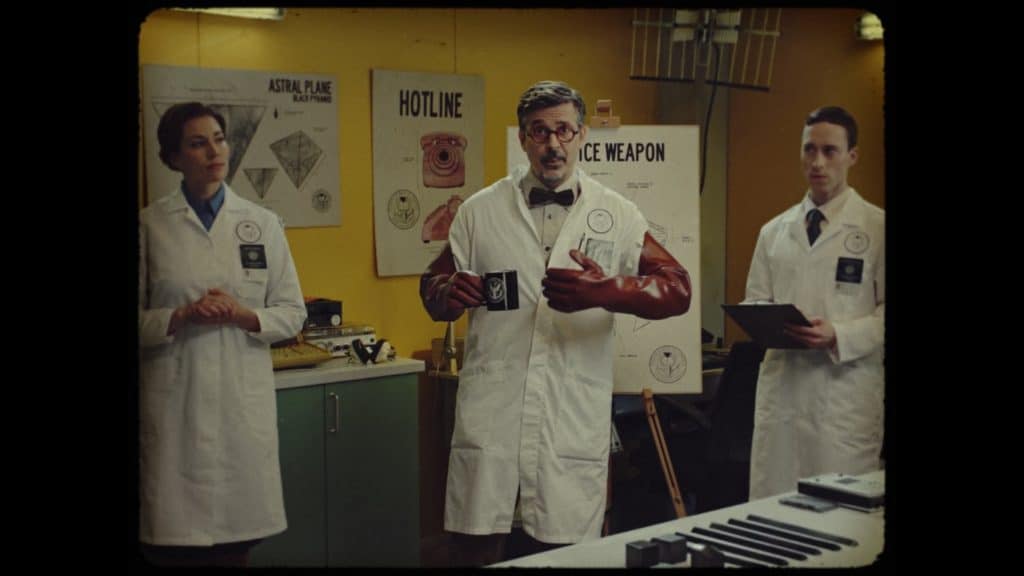
The Hiss is the main protagonist in Control. A paranatural entity that has possessed all personnel within the FBC. Those who are not yet possessed are given Harmonic Resonance Amplifiers (HRA) developed by Doctor Casper Darling – a scientist whose experiments and musings into the paranatural world will influence Jesse’s path as director. FBC agents who have been possessed, form the main antagonists that Jesse will face within the game. Some are mere extensions of their former selves, like gunmen and sniper specialists, whereas others have undergone paranatural transformations to become monstrous entities. Initially, the enemy types will take some getting use, but once their patterns of movement have been discerned, the challenge moves on from “how do I beat this foe” to “what strategy is best employed in order to stay alive”.
Once all of Jesse’s abilities have been obtained and upgraded, the gameplay opens up exponentially. Through a series of carefully thought out refinements, Remedy have crafted a well oiled and, most importantly, fun to play protagonist in Control. There are moments where you will feel like a Jedi Master or Neo from The Matrix, performing incredible combo moves and expunging foes without a second thought. The gameplay and controls are fantastic, and are easily the best aspects of the game.
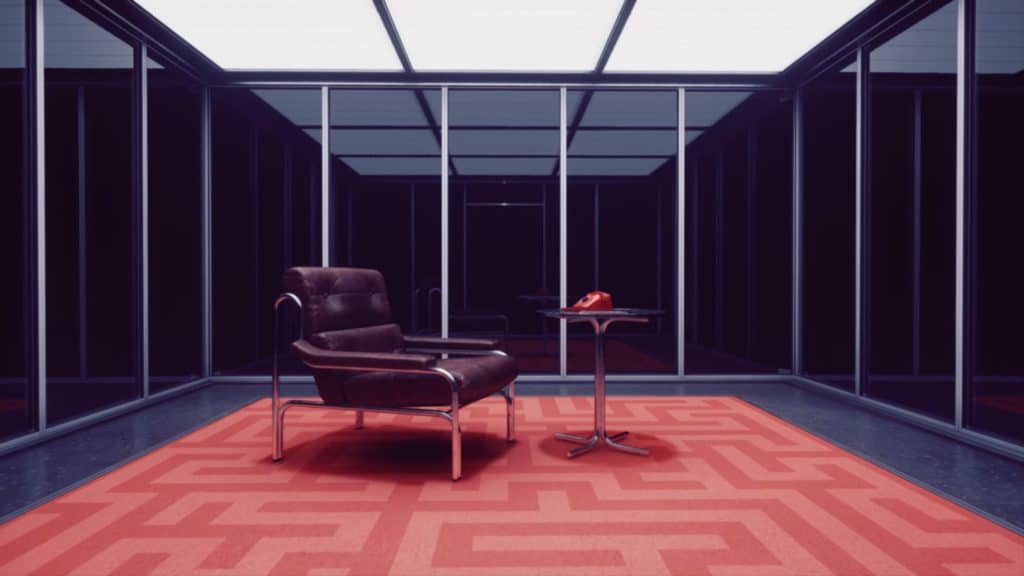
Control technically only takes place in one single location, The Oldest House. However, the location is paranatural. As a result, levels morph and transform much like the terrain in the film Inception. The level design is also Metroidvania styled, which lends wonderfully to the maze like aspects of the title. There is also no loading between locations, unless using fast travel, with environments melding into one another seamlessly.
Although all levels are connected, many locations are barred off until Jesse can get the appropriate clearance, relevant ability or solve the many puzzles to open up passageways to new areas. They are also varied and unique enough to keep players engaged throughout the entirely of the campaign and its many side missions and special events. Whether that includes a visit to the astral plane to learn about a new ability, or perhaps a hidden motel area that serves as a bridge between locations, through to fungus infested basements and even a literal maze; the locations in Control are wonderfully varied and can be utterly gorgeous.
Is this real/fake or fantasy/reality?
Control has been built on Remedy’s proprietary Northlight engine, which first debuted with the excellent Quantum Break. Much like that debut title, Control can be an absolute feast for the senses. There are moments throughout the campaign where it can be difficult to discern between what is real and what is rendered using the Northlight engine – a perfect fit given the game’s paranatural premise.
Environments also feature a healthy amount of destructibility, which serves to aid the use of Jesse’s telekinetic abilities. Explosions are sensational, and there are many unusual and unique effects used to showcase paranatural entities and Hiss infected FCB soldiers. Including a clever use of light, shadows and smoke effects. However, unlike Quantum Break, Control suffers from a lack of decent facial motion capture and some subpar voice acting. Although character models look great, their believability leaves a lot to desire, and is in stark contrast to the incredible environments and effects.
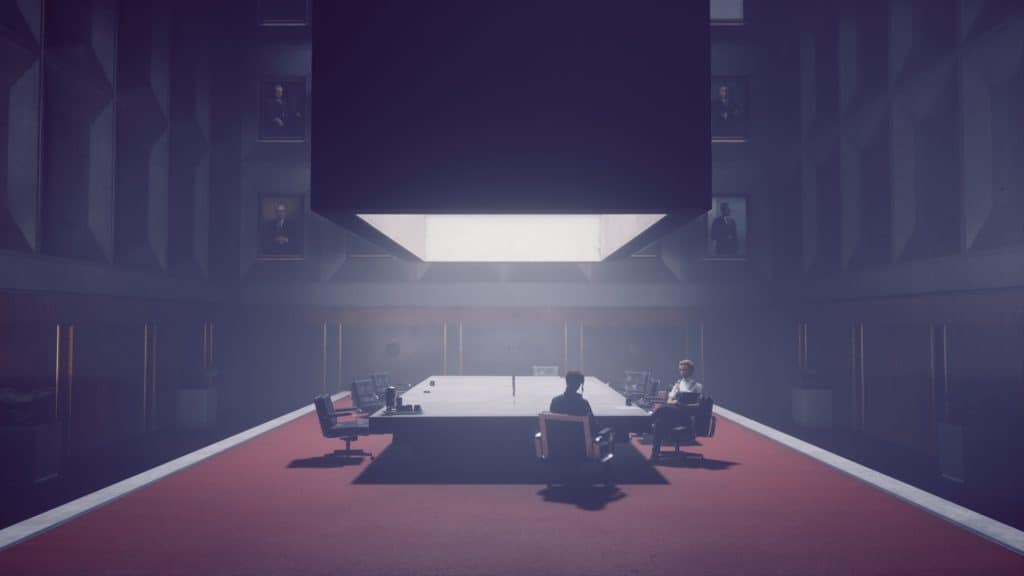
Audio in Control is also absolutely superb, and is most likely one of the strongest aspects of the title. Not only is the soundtrack haunting, but the game makes phenomenal use of spacial and context sensitive music to lead players in and out of combat. More often than not, I was able to discern if enemy Hiss units were nearby by simply listening to the music change. The same applies to whether those enemies are aware of Jesse’s presence or not, and if they have been disposed of. It is fantastic to see a developer pay as much attention to audio design as they do to visual design, making Control one of the best, and most haunting, auditory experiences I have enjoyed from a video game.
Unfortunately, Northlight is not perfect. Control suffers from a lot of unusual stuttering when accessing the pause menu or game menu items. It also crashed a few times during my play through on Xbox One X. There were also issues of character clipping, difficulty in selecting items for Jesse’s telekinetic abilities, and missing maps. With that said, most of these issues are more annoyances than game breaking, and there is a good chance that Remedy will patch them out quickly after launch.
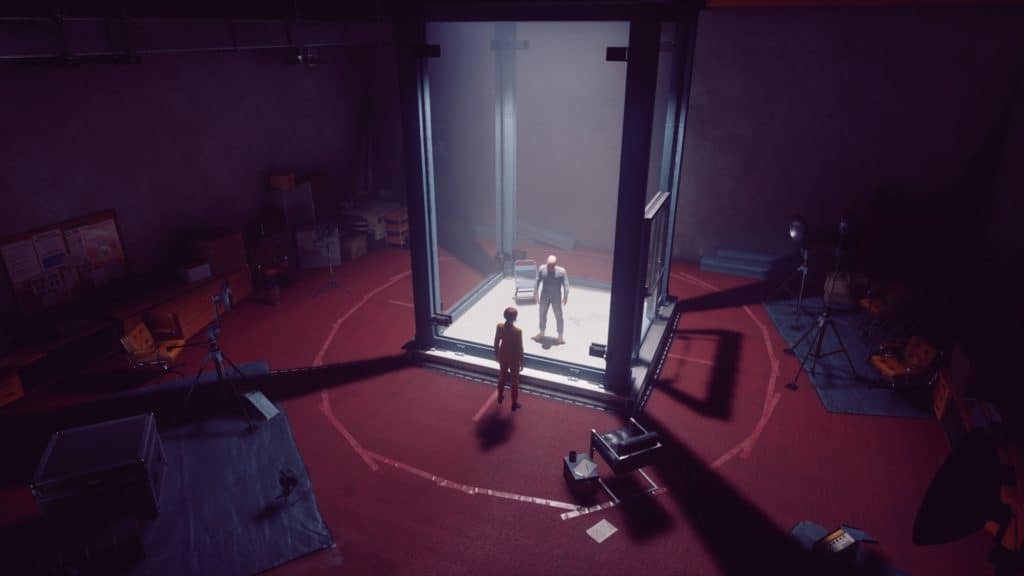
Start/end or beginning/conclusion?
Control is an interesting title. It features some truly incredible gameplay, with visuals and audio to match; but disappoints in terms of providing an engrossing narrative.
The puzzle like structure of the overarching story can be confusing and often lacks any real draw for gamers to continue pushing through the game’s 20 hour campaign. Of course, the narrative becomes infinitely more interesting when time is taken to fully explore The Oldest House and its many mazes, puzzles and intricacies. With that said, it is a pity how much of the narrative context that builds the world of Control is relegated to the outskirts of the narrative, when they should be at the forefront of the experience. At best, the draw to find out what is actually going on and to help Jesse’s brother will keep players moving forward; at worst, there are a multitude of side quests and mini-bosses to invest in as players push toward the conclusion.
The issues of narrative aside, Control features superb level design that encourages exploration. The campaign and narrative are designed in such a way that players will unintentionally revisit old locations, at higher levels, to discover new and interesting places that were previously inaccessible. The exploration coupled with the superb gameplay help mask the repetitive nature of the title, thus making Control genuinely fun to play. Jesse being a likeable protagonist, with her fourth-wall breaking moments of introspection, not to mention the often crazy and psychedelic level design, should keep players interested for some time to come.
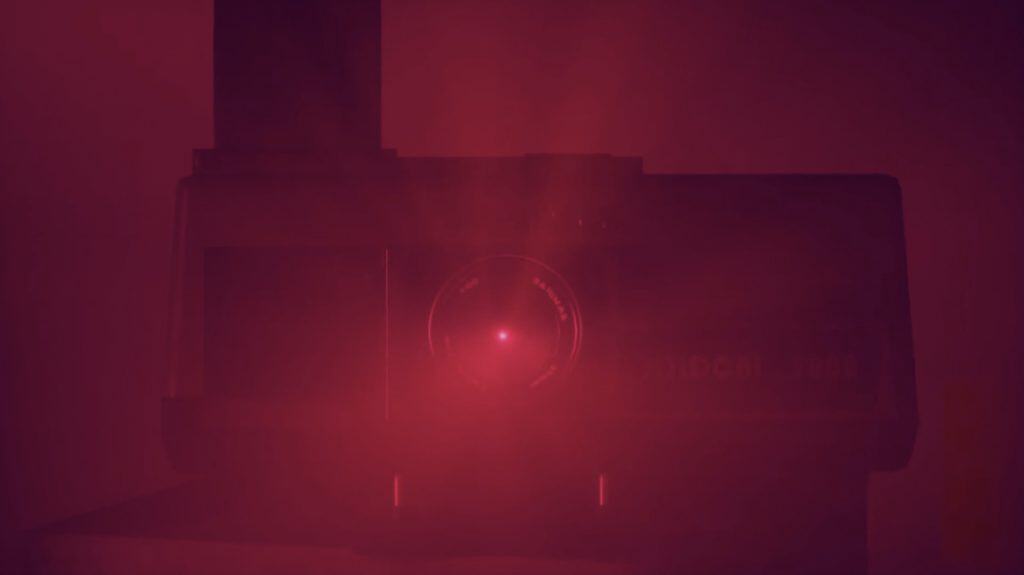
| Difficulty | N/A |
| Time Played | 20+ Hours |
| Platform | Xbox One |
| Acquisition | Review code courtesy of 505 Games |
Owner, founder and editor-in-chief at Vamers, Hans has a vested interest in geek culture and the interactive entertainment industry. With a Masters degree in Communications and Ludology, he is well read and versed in matters relating to video games and communication media, among many other topics of interest.





